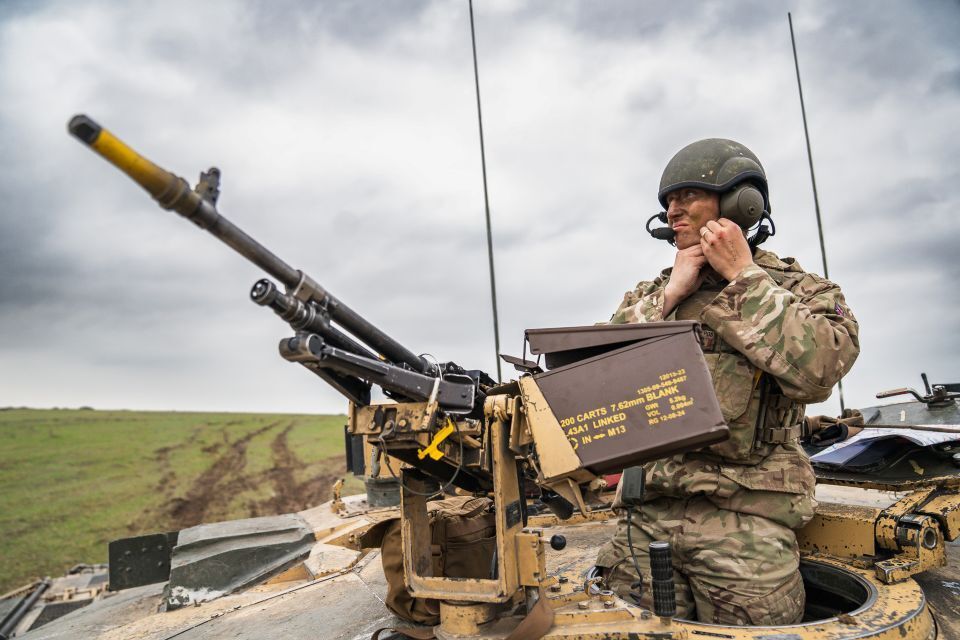US DoD awards University of Birmingham a Concussion research contract
Above: An aerial view of the Pentagon.
Courtesy US DoD / Photo: Air Force Staff Sgt. John Wright, DoD
The seven-year contract by the US Department of Defense (DoD) has a potential award amount of $15.5 million over the performance period for the programme to analyse a range of biomarkers – such as blood and saliva, mental health, vision, balance and sleep – and measure their ability to predict long-term complications from mild Traumatic Brain Injury (mTBI), also known as concussion.
Some 890 people, aged 18 to 60, will take part in this mTBI-Predict study, as researchers measure effectiveness of various methods to predict outcomes of mTBI after six, 12 and 24 months.
mTBI can be caused by physical impact to the head through accident, injury, sport, or even from shockwaves following explosions.
Led by the Royal Centre for Defence Medicine (RCDM) and the University of Birmingham, researchers will use the UK TBI Research Network to recruit both civilian and military participants to the programme.
The mTBI Predict programme will be supported by Birmingham Health Partners and University Hospital Birmingham, as well as a range of research institutions across the UK.
The study is led by Professor Alex Sinclair, from the University of Birmingham, who commented: “Concern around the long-term effects of concussion is mounting. Even a minor injury to the head can cause concussion, which leads to brain injury with potentially serious effects on both immediate and long-term health.”
“We have no precise way to tell who will have a serious consequence after a concussion. This means we can’t tell which patients will need more intensive treatment and which will recover spontaneously. The mTBI Predict research programme will identify new ways to accurately predict whether concussion patients will develop long-term complications.”
Concussion has been declared a major global public health problem, with 1.4 million hospital visits due to head injury annually in England and Wales. Some 85% of these are classified as concussion and it is also estimated that up to 9.5% of UK military personnel in a combat role are diagnosed with concussion every year.
Major General Timothy Hodgetts CB CBE KHS, Surgeon General of the UK Armed Forces, commented: “UK Defence has funded the initiation of this research but it would not be possible to complete without the support from US DoD. This is a prime example of our longstanding bilateral research collaboration where we have a common purpose to address a significant and shared clinical problem. This study will be definitive in helping us identify those who need the most help and resources following a very common injury.”
The research programme brings together a team of experts including neuroscientists, psychologists, sport and exercise scientists, software developers and statisticians - coordinated by Birmingham Clinical Trials Unit.
The study will recruit patients with concussion related to sports injuries, road accidents, cycling accidents, falls and accidents at work, and military personnel experiencing concussion during training or active duty. It will involve military patients and expertise from the Defence Medical Rehabilitation Centre Stanford Hall and Royal Centre for Defence Medicine.
Dr David J. Smith, Deputy Assistant Secretary of Defense for Health Readiness Policy and Oversight, US Department of Defense (DoD), commented: “The US Department of Defense is excited to support this study and continue to identify threats to the brain, such as blast overpressure, head impact, directed energy and environmental hazards.
“These threats may have a direct impact on brain health. Our aim is to reduce risks to the brain, monitor exposures, and document them for long-term review. The goal is to look for multiple protection strategies to decrease exposures and protect brains better. This research will play a pivotal role in continuing our research investments partnering with the UK to better understand mTBI and concussion to prevent and reduce their effects.”
Although classed as mild brain injury, concussion leads to a disproportionate impact on future health, with three in 10 patients unable to work 12 months after their injury. The consequences of mTBI are profound, with many patients suffering long-term disability due to persistent headaches, imbalance, memory disturbance and poor mental health. The mTBI-Predict will look at biomarkers to enable faster diagnosis and assessment of a concussion, leading to improvements in treatment and long-term management, enabling a quicker return to play, work or duty.












